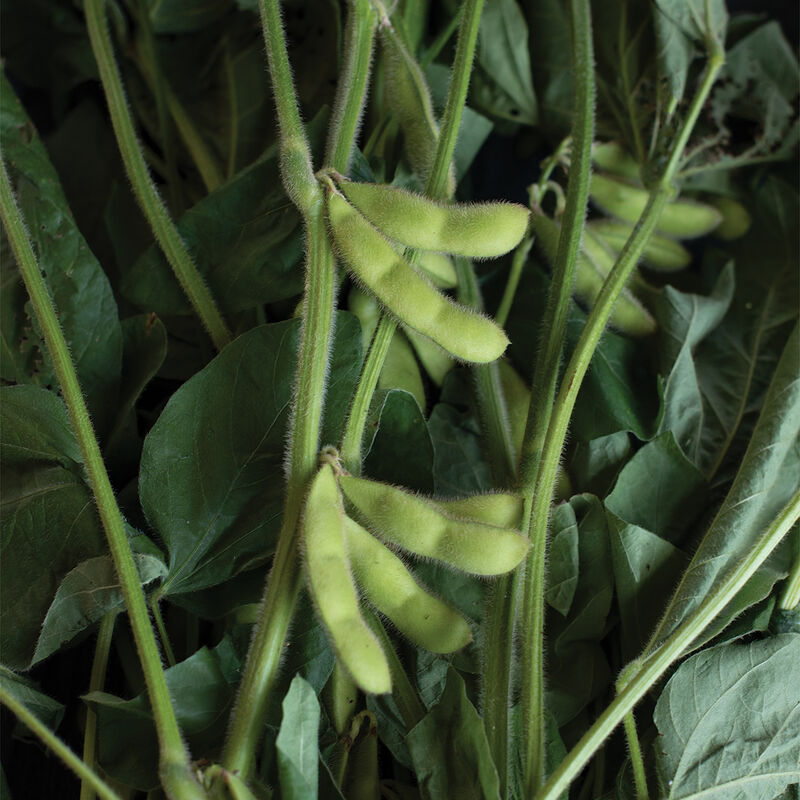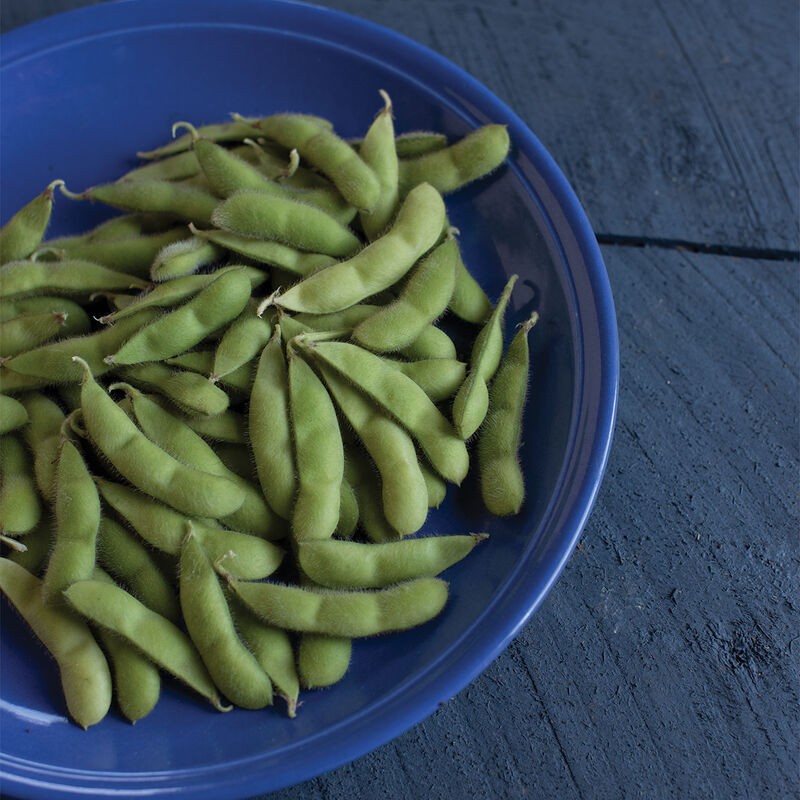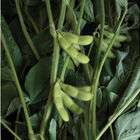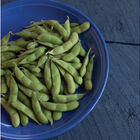Karikachi Soybean Seed
Karikachi Soybean Seed
Heavy yielder with longer harvest window.
Very tall, upright plants are sturdy and vigorous, producing large, plump pods averaging three seeds each. Tastes great when steamed. Larger yields than Tohya and strong resistance to lodging. Indeterminate. Light tan pubescence. Bush bean.Specs:
- This product does not ship to the following countries: Taiwan, Ukraine.
SCIENTIFIC NAME:
Glycine maxCULTURE:
After the last frost date plant 2" apart, 1" deep, rows 15–30" apart in any good garden soil. Upright plants are easier to cultivate. For nitrogen-fixing inoculants, which can increase yields,use those formulated for soybean crops. In extremely rich soils, plants sometimes exhibit overly lush growth, growing too tall to stand up. In this case, plants should be hilled up with soil. Soybeans can stand somewhat dry conditions, but irrigation may be necessary during drought periods.FRESH SOYBEAN HARVEST AND COOKING:
For determinate varieties, most pods ripen at once. Clip plants near base when the beans are plump in the pods. Beans attain their highest fresh weight just as pods begin to lose their bright green color. Hand-strip remaining leaves and tie small bunches of plants for retailing. Shelling tips: strip pods, rinse, and steam or boil for about five minutes or until tender, after which the beans can be easily popped from the pods. Boil in salt water to complete cooking. Package for freezing at this point.DRY SOYBEAN HARVEST:
When at least 90% of the leaves have fallen and the pods are dry, pull the plants out by the roots. Complete drying under cover if weather is wet.THRESHING:
Depending on quantity, thresh by (1) shelling pods individually; (2) holding several plants by the roots and banging back and forth inside a barrel or trash can; (3) stepping on a large, closed bag full of dry plants; or (4) using a properly adjusted threshing machine.STORAGE:
Make sure beans are dry (max. 9% moisture) and then store in a cool place or freeze to control storage insect pests.AVG. SEEDING RATE:
1 lb./225', 5 lb./1,000', 87 lb./acre at 8 seeds/ft. and rows 30" apart.SEED SPECS:
SEEDS/LB.: See individual varieties.PACKET:
100 seeds, sows 11–14'.Johnny's is committed to your success, every step of the way.
We want you, our customer, to be 100% satisfied with all of our seeds, tools, and supplies.
If anything you purchase from us proves unsatisfactory, we will either replace the item or refund the purchase price.






